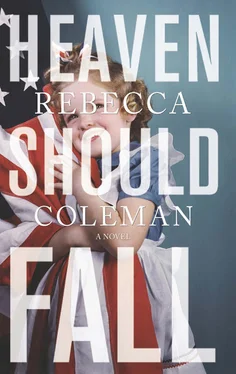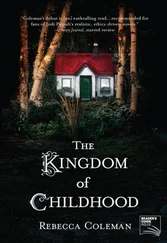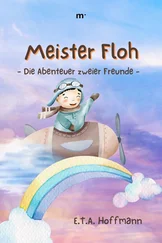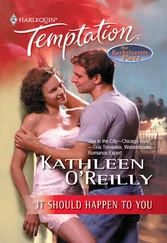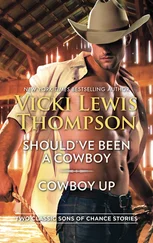“You dumb son of a bitch!” Dodge said. “Didn’t I tell you this would happen?”
“The car was trashed anyway.” I exhaled smoke and looked down at the deer. Dodge was still looking at me in incredulous silence. After a minute or so I said, “We ought to field dress it and butcher it once we get it in the house.”
“God damn , Cade.” Dodge was staring at me as though I’d lost my mind. “There’s better ways to hunt a deer than to slam into it with your car.”
Lightning came tearing across the lawn with Jill and Candy close behind her. “Holy crap,” said Jill.
I looked at Dodge. “Guess I’m driving the Jeep now.”
Jill stroked down my arm. “Are you hurt or anything?”
I shook my head.
“Cade,” she said.
I couldn’t even look at her. I knew it wasn’t her fault. I swear to God I knew. But it was as if the whole thing was past her now. It was like hearing Piper cry out that first time I was with her—you can love somebody and they can love you back, but when they suffer or you do, the pain stays where it started. You can say, wow, that sounds like it must have hurt, but you don’t actually feel it one bit. In fact, in the midst of it, you’re free to go ahead and feel something exactly opposite. Love tricks you into believing that together you complete a circuit, that everything flows between the two of you in a current, that the two become one flesh. And that’s bull even in the metaphorical sense. Jill couldn’t feel what I felt about Elias, and so she wasn’t responsible for it. By extension, she wasn’t responsible for anything I would do with it. She was free of all of that, and I didn’t begrudge her for it. Not at all. I was glad.
Jill
Candy slashed the deer’s throat with a single clean cut, and the blood poured onto the ground with a lush splashing sound. Dodge had strung it up from the tree nearest the garden, where Candy thought the smell of its blood in the earth would drive away others of its species. Belatedly, Dodge thrust a bucket beneath the carcass. The sound was identical to that of flowing water. Candy slapped the deer on its flank and said, “This baby’s gonna feed us all winter long.”
From around the front of the house I could hear a loud metallic banging, then the sound of shattering glass. Walking over, I found Cade standing next to his Saturn with a sledgehammer, beating the crap out of the hood. The windshield was smashed, and glass littered the driver’s seat. For a couple of minutes I just stood there, watching him destroy the car. When he worked his way around to the back windshield, I asked, “Do you want to talk about it?”
He took aim at one of his taillights and whanged it with the hammer. “Talk about what?”
“Your accident. Your brother. How angry you are and where you’re going with it.”
“Pretty broad range of subjects.”
“Cade.”
He looked up at me with the defiant expression of a young man called to the principal’s office. A riot of small scratches from the glass and metal covered his arms.
“This is not what you do with grief,” I said. “Stop it. You’re better than this, Cade. If anybody can take what happened to Elias and make something positive come out of it, it’s you. But look where you’re at right now. You need to—”
“Save your intervention for somebody who cares,” he said. His voice took on a jeering note. “Life isn’t a fucking AA meeting, Jill. Not everybody wants to sit around talking about how powerless they are and how they turned it all over to God. ‘Aggressive fighting for the right is the noblest sport the world affords.’”
“So that’s where you’re going with this, then? You’re not going to try to get over what happened to Elias at all. You’re just going to keep beating and beating against that wall until somebody pays.”
“Somebody owes.” He whacked the back windshield. “I’m the collection agency.”
I knew right then that I was going to leave him. There was no redemption to be had here, no moment of clarity when Cade would realize it was time to pull it together. Months ago, TJ’s birth had shown me that I could be as strong as my mother when I needed to be; what she had endured, I could get through, as well. I couldn’t remember that day we stopped in the almond orchard, and yet here I was again, standing in her place this time, knowing it was time to leave this family behind.
I would leave as soon as TJ recovered from his ear surgery. I owed my son that much, not to delay his medical treatment so I could get away from the dead end of Cade. If I could make it with him this long, I could tolerate him a little longer. And then, with the same sudden surety of knowing I was leaving, I knew my destination: not Randy’s, but Southridge, the place where I’d belonged all this time. You’ve got a home, and it’s here , Dave had assured me. I hoped he meant it, because I was about to show up on his doorstep either way.
I watched Cade for another minute, standing clear of the shattering glass and plastic. Then I slipped into the house, and as I made my quiet way up the stairs to check on my sleeping son, it struck me that this was exactly how my mother had done it: to walk away from my father because she saw no place for him in her future with me. I wondered if she had once loved him as I had loved Cade. Always, he had seemed so remote from my mother that I’d felt as though I was, and always had been, hers alone. I mused on whether TJ would one day feel that way, too, indifferent to who his father had been or the love that had created him. And as I lifted him from the laundry basket and cuddled him awake, I wondered if that was a victory or a loss.
* * *
Eddy was sick as a dog. On the morning Cade drove Leela down to Concord for the craft fair, when I came in with Eddy’s coffee, I could not wake him up. He breathed, and behind his lids his eyes fluttered, but the usual soft shaking and calling his name did nothing to rouse him. His skin bruised so easily that I was afraid to shake him any harder. All of a sudden I felt very nervous.
“Eddy,” I said more loudly, almost a reprimand. I laid my hand on his bristled cheek and patted it firmly. A crust of drool traced a line from his mouth down his chin, like a ventriloquist’s dummy. I left his coffee beside the bed and called for Candy from the landing.
She thumped up the staircase and brushed past me into the bedroom. With a jaded gaze she glared down at him, ruffled the sheets a bit and said, “He’s fine. He’s tired, is all.”
“He won’t wake up.”
“He just needs his rest. Leave him alone. He doesn’t need your damn coffee.”
She started toward the door. “Candy, stop,” I pleaded. “It isn’t normal for him to be like this. Don’t you think we ought to call an ambulance or something?”
The corner of her mouth lifted in a smirk that was unlike her. “We don’t call 911,” she said, imitating Dodge. “And the phone’s out anyway.”
This was true. Eddy had been the one who paid the phone bill, and since he had gotten so ill, no one had bothered with it. Dodge and Candy’s house had no landline, and Dodge and Cade made do with their cell phones. But Candy didn’t have one, and I’d let mine go long before, when money got too tight.
“I can walk over to the Vogels’ and call from there,” I challenged her. “Or we can take him to the firehouse. We can’t just leave him like this. What if he doesn’t wake up?”
“He’ll wake up once he’s had his rest. Jeezum, Jill, let the man be. Don’t need to call out the National Guard ’cause an old man’s sleeping.”
She hustled down the stairs. In the silence of the little room I looked at Eddy for a long moment, then flicked at his cheek gently with my fingers. “Wake up, Eddy,” I said. “Hey. Coffee.”
Читать дальше
